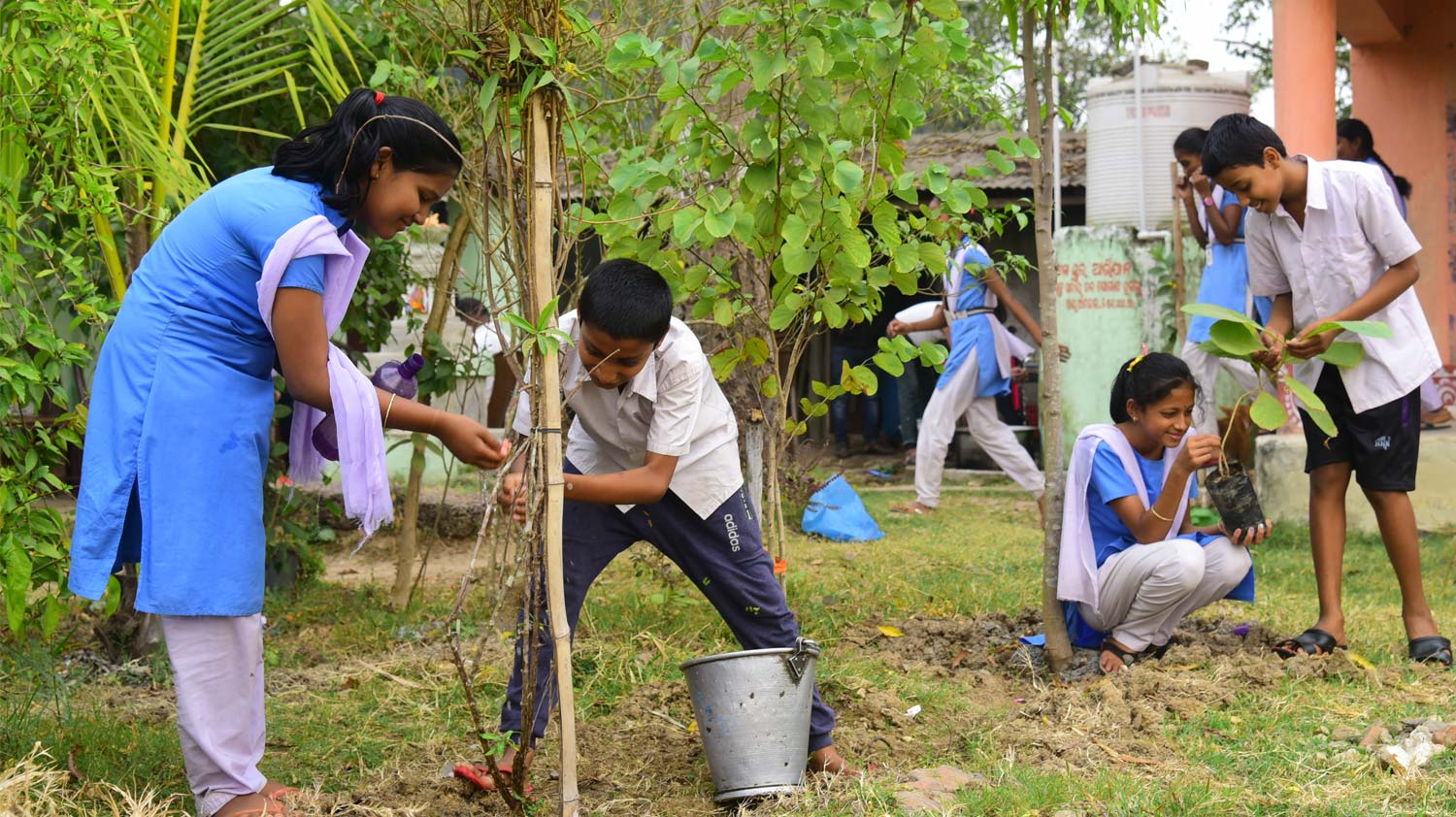
At Aspire, we believe that education is the best tool for creating awareness about the environment and the impact of climate change on our daily lives. That’s why we have developed a series of tasks for children that include drawing and explaining the jungle, learning about natural disasters like the Pakistan flood and Odisha cyclone, and studying science topics like adaptation, animal kingdom, biodiversity, and climate change. We also encourage children to learn about inspiring figures like Greta Thunberg, whose activism has had a significant impact on young people around the world.
We have also introduced tree plantation at our Residential Bridge Course (RBC) centers, where children are given a sense of ownership by taking care of plants and trees on vacant land within the premises of RBCs. This group activity helps unite children, leading to better communication and cooperation.